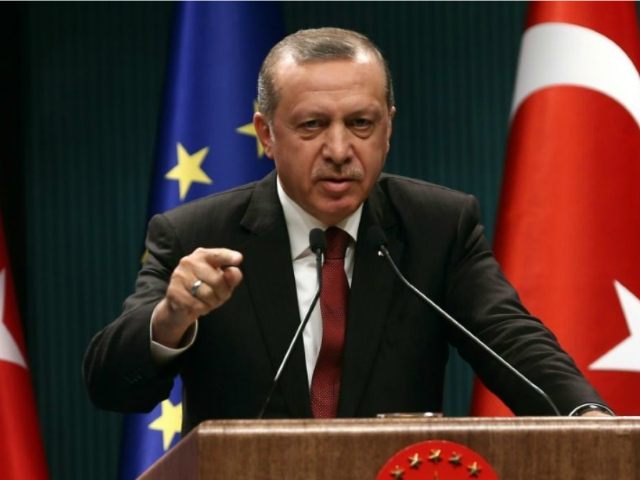The government of Turkey announced Friday that it has deployed 150 soldiers and 20 tanks to Mosul, Iraq, to participate with the U.S.-led coalition against the Islamic State (ISIS/ISIL).
“Turkish soldiers have reached the Mosul Bashiqa region. They are there as part of routine training exercises. One battalion has crossed into the region,” a military source told the Daily Sabah.
These troops will replace the ones already in Iraq’s second largest city, “who have been there for 2.5 years for the training of Peshmerga.” However, ISIS only captured Mosul in June 2014. Turkish troops arrived in northern Iraq in November 2014 to help the Peshmerga.
The news breaks during a war of words between Turkish President Recep Tayyip Erdoğan and Russian President Vladimir Putin. The quarrel started on November 24 when the Turkish military shot down a Russian warplane over Syria, killing one pilot. Putin enacted sanctions and even accused Erdoğan of profiting off of ISIS oil.
“At the moment we have received additional information confirming that that oil from the deposits controlled by Islamic State militants enters Turkish territory on industrial scale,” stated Putin. “We have every reason to believe that the decision to down our plane was guided by a desire to ensure security of this oil’s delivery routes to ports where they are shipped in tankers.”
Erdoğan said if Russia provided proof of transactions, he would resign his post.
“As soon as such a claim is proved, the nobility of our nation requires [me] to do this,” he said at the Paris climate change summit. “I will not remain in this post. But I am asking Mr. Putin, would you remain?”
The Russian Defense Ministry posted alleged pictures of tankers taking oil to Turkey, but the Kurdish government said the photos actually show their army tankers. Erdoğan then pointed the finger at Russia and said its government buys ISIS oil.
The Turkish government hesitated the past year to join the fight against ISIS, even though they share a border with Syria. They supported the rebels against Syrian President Bashar al-Assad when the civil war began four years ago. On multiple occasions, media reports have tied Turkey to the radical Islamic group.
In October 2014, David Cohen, the undersecretary for Terrorism and Financial Intelligence, said in a speech to the Carnegie Endowment for International Peace that ISIS earns “as much as $1m a day through the sale of oil to some of its biggest enemies: middlemen from Turkey, Iraq’s Kurdish community and the regime of Bashar al-Assad.”
In July, a Western official told The Guardian that evidence seized at the compound of Abu Sayyaf, an ISIS leader, indicated there were links between the terrorist group and the Turkish government.
“There are hundreds of flash drives and documents that were seized there,” explained the official. “They are being analysed at the moment, but the links are already so clear that they could end up having profound policy implications for the relationship between us and Ankara.”
ISIS placed Sayyaf in charge of oil smuggling, a multi-million dollar industry for the terror group. The evidence at his compound allegedly highlights NATO member Turkey as one of its top clients.
Turkey changed its policy towards ISIS after a suicide bomber murdered 32 people and injured 100 in Suruç at “a cultural centre hosting anti-Islamic State activists.” Those at the event were about to head to Kobane, a strategic Kurdish border town recently recaptured by Kurdish forces. Suruç is directly across the border from Kobane.
The government announced an airstrike campaign in Syria and gave America permission to use the Incirlik Air Base to strike ISIS in Syria. However, Turkey decided to also bomb the Kurdistan Workers’ Party (PKK), “a Marxist-Lenin terrorist group the Turkish government has vowed to eradicate along with ISIS.” While the Syrian Kurdish military allied itself with PKK, the Iraqi Kurds do not get along with PKK. The rivalry between PKK and Barzani’s Kurdistan Democratic Party (KDP) traces back to the Iraqi Kurdish civil war in the 1990s.

COMMENTS
Please let us know if you're having issues with commenting.